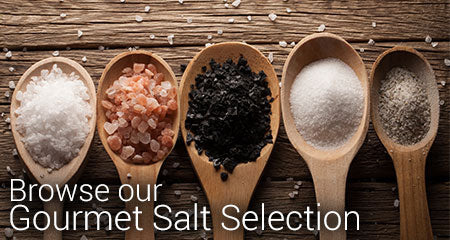Can Your Teeth Give You A Heart Attack? - Blog # 38

Hello everyone! Welcome to another Friday blog. Did you know the health of your gums affects your heart? Today I want to discuss the connection between Periodontal Disease and CVD (cardiovascular disease). Let’s delve in.
First, what is periodontal disease? According to the CDC, “Periodontal diseases are mainly the result of infections and inflammation of the gums and bone that surround and support the teeth. In its early stage, called gingivitis, the gums can become swollen and red, and they may bleed. In its more serious form, called periodontitis, the gums can pull away from the tooth, bone can be lost, and the teeth may loosen or even fall out.”
- 47.2% of adults aged 30 years and older have some form of periodontal disease.
- Periodontal disease increases with age, 70.1% of adults 65 years and older have periodontal disease.
We have a host of good and bad bacteria living in our mouths competing for binding sites and nutrition. They work to adhere to the tooth surface around the gum line, or even to other bacteria! In a review by the NIH, “Between 3-12 weeks after the beginning of supragingival plaque formation, a distinctive subgingival microflora predominantly made up of gram-negative, anaerobic bacteria and including some motile species, becomes established.”

Once established, these bacteria travel throughout the body, triggering inflammation in the heart valves and vessels. There’s that word again! INFLAMMATION! Inflammation leads to CVD (cardiovascular disease) plaques in your heart valves and arteries. These plaques are often unstable and can break free to cause heart attacks or strokes.

“The risk is even greater when high cholesterol is added to the mix. Researchers have uncovered oral bacteria in the fatty deposits of people with atherosclerosis, a disease in which plaque builds up in the arteries. Untreated, those deposits can narrow arteries or break loose and clog them, causing a heart attack or stroke.” In fact, according to the Journal of Clinical Periodontology, “there is a significant body of evidence to support independent associations between severe periodontitis and several NCDs (non-communicable diseases), in particular CVD.”
Okay, so let’s look at some warning signs: (stats taken from CDC)
- Bad breath or bad taste that won’t go away
- Red or swollen gums
- Tender or bleeding gums
- Painful chewing
- Loose teeth
- Sensitive teeth
- Gums that have pulled away from your teeth
- Any change in the way your teeth fit together when you bite
- Any change in the fit of partial dentures
What about risk factors?
- Smoking
- Diabetes
- Poor oral hygiene
- Stress
- Heredity
- Crooked teeth
- Underlying immuno-deficiencies—e.g., AIDS
- Fillings that have become defective
- Taking medications that cause dry mouth
- Bridges that no longer fit properly
- Female hormonal changes, such as with pregnancy or the use of oral contraceptives
This condition is more common in men than women (56.4% vs 38.4%), those living below the federal poverty level (65.4%), those with less than a high school education (66.9%), and current smokers (64.2%)
So, what can we do about this, other than brush and floss regularly and get dental checkups? A new study revealed an inverse relationship with frequent EVOO consumption and periodontal disease. Multiple other studies are demonstrating an inverse relationship between olive oil intake and coronary heart disease mortality and incidence, as well as stroke in women!!! “Olive oil—specifically extra-virgin—intake in the context of a MedDiet was associated with a reduction in the risk of CVD and mortality in older high cardiovascular-risk individuals.”
Several recent studies are demonstrating that consuming EVOO helps prevent bacteria adhering to the tooth surface, as well as preventing dental caries. Dental caries, or tooth decay, results from a breakdown of the tooth enamel. “Tooth decay is four times more common than asthma among adolescents aged 14 to 17 years. Children with cavities are significantly more at risk for heart disease. Unfortunately, incidence of dental caries is high in healthy children and adolescents. With the recent understanding of the connection between dental health and multiple non-communicable diseases, many countries are taking steps to educate parents and children to prevent heart disease and stroke later in life. “A case-control study by Kelishadi et al. reported that dental caries was significantly related to cardiometabolic risk factors (e.g. lipid profile, body mass index, and waist circumference) in adolescents9.” Dental caries also affects adults, with 9 out of 10 over the age of 20 having some degree of tooth-root decay.”
EVOO adds “hydrophobic characteristics to the tooth surface hampering bacterial colonisation and eventually decreasing caries susceptibility. Olive oil is rich in oleic acid and other phenolic compounds, is useful for enhancing fluoride inhibition of extracellular polysaccharide (EPS) formation by Streptococcus mutans and has a role in preventing biofilm formation. Therefore olive oil, which is rich in oleic acid, may be useful in the prophylaxis of dental caries and periodontitis to promote oral health.”
So, as Charles was reading the blog, he commented that his teeth hadn’t been feeling “furry” after a whole day of not brushing since morning. He told me he had noticed that his teeth weren’t getting food “stuck” to the surface like before we started taking our EVOO shots. To be honest, I hadn’t put the two together until doing the research either! I find it absolutely so fascinating that EVOO can do so many things for EVERY PART of our bodies!!!
Okay!!!! We already know that high polyphenol EVOO does the MOST for us. Oleic Acid in olive oil is amazing at preventing plaque formation in our arteries and now we know it helps prevent plaque formation on our teeth too! Oleocanthal is a powerful anti-inflammatory that protects our arteries and gums from inflammation. Other polyphenols including Oleuropein, tyrosol, hydroxytyrosol, verboscoside, ligustroide, demethyleuropein are all proven to protect against CVD as well as displaying antimicrobial and antiviral effects. Antioxidant and anti-atherogenic effects of olive oil polyphenols, like oleuropein and hydroxytyrosol, have been vastly confirmed in the literature. Taking high polyphenol EVOO helps to reduce the risk of CVD in multiple ways. It decreases oxidative stress and inflammation, increases endothelial function and reverse cholesterol transport, prevents adhesion of sticky oxidized LDL to our blood vessels thereby improving vascular pliability and decreasing strain on the heart. I don’t know about you, but it’s reassuring to know that I can protect my heart as well as my teeth by consuming high polyphenol EVOO!! I will continue to take my EVOO shot every morning!!!
So, until next time my friends, drink, drizzle, digest high polyphenol EVOO, eat fatty fish rich in Omega 3s, eat foods high in lutein, drink lots of water, brush and floss your teeth, get plenty of sunshine and supplement vitamin D3, get a good pre/probiotic to balance your gut microbiome, exercise your body and mind, get plenty of sleep…and turn off the light! #EVOO






